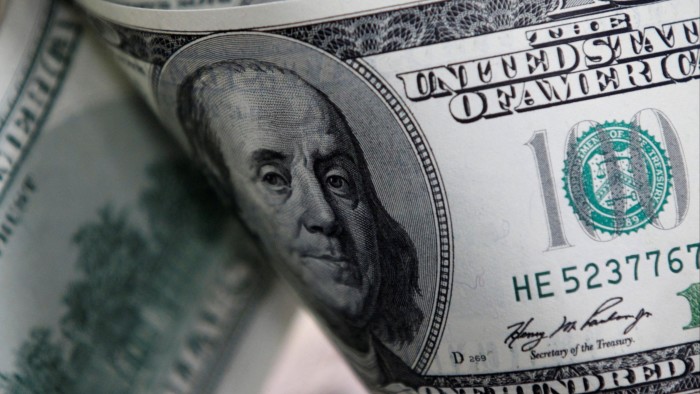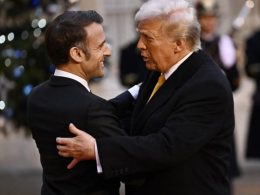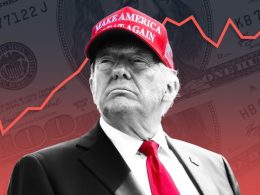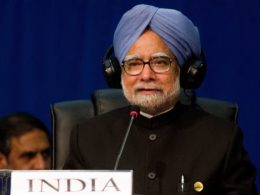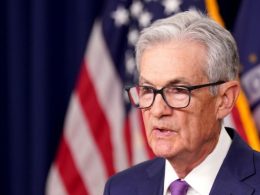This article is an on-site version of our FirstFT newsletter. Subscribers can sign up to our Asia, Europe/Africa or Americas edition to get the newsletter delivered every weekday morning. Explore all of our newsletters here
Today’s agenda: Los Angeles wildfires rage on; China deflation fears; nuclear “microreactors”; Trump’s Arctic tussle; and private sector eyes the Moon’s airwaves
Good morning. Corporate borrowers have kicked off 2025 with a record $83.4bn in investment-grade and high-yield dollar bond sales, the highest year-to-date figure since 1990.
What’s behind the bond rush? The rush of new debt sales comes as spreads — the difference between the yield on corporate debt versus safer government bonds — are near multi-decade lows, spurring companies to raise funds cheaply while they can. Big borrowers are also under pressure to refinance quickly, with $850bn of high-grade dollar debt set to mature this year and another $1tn in 2026, according to Wells Fargo calculations. High-grade borrowers including BNP Paribas, Société Générale, Toyota, and heavy machinery maker Caterpillar have led the rush. US banks are expected to join the fray later this month after their earnings season.
Why it matters: The latest deal burst comes as companies lock in cheaper debt before Donald Trump’s inauguration, with economists warning that the incoming US president’s telegraphed policies, including trade tariffs, could be inflationary. One analyst also pointed to “fairly critical risk events in January”, including US jobs data due tomorrow, which will offer investors clues about the future path of interest rates. Minutes from the last Federal Reserve meeting showed officials were concerned about inflation and wanted to be “careful” with the pace of future rate cuts.
Read our full story on the corporate bond spree and more on bond markets below:
-
Bond ‘police’: With investors selling sovereign debt in big economies amid a deluge of borrowing, markets have entered a new era of antagonism with governments, fund managers say.
-
UK gilts: Rising borrowing costs raise the risk that chancellor Rachel Reeves will have to impose tighter fiscal policy as soon as March.
And here’s what else we’re keeping tabs on today:
-
Los Angeles wildfires: Flames fuelled by strong winds continue to rage out of control as authorities begin to confirm the first known fatalities.
-
Lebanese politics: Lawmakers are due to elect a president in a critical gauge of how a weakened Hizbollah will be able to wield its influence.
-
Companies: Trading updates are expected from Greggs, Marks and Spencer and Tesco, which also reports third-quarter results.
Five more top stories
1. China’s consumer prices barely rose in December, climbing 0.1 per cent against a year earlier in the slowest growth in nine months. The reading underlines deflationary pressures that have pushed bond yields to record lows in the world’s second-largest economy. Read the full story.
2. Exclusive: Unions are concerned that Lloyds Banking Group is planning to shut hundreds of locations and axe more jobs after its move to allow Halifax, Lloyds and Bank of Scotland customers to use any of its branches across the three brands. Akila Quinio has more from London.
3. Nuclear energy groups are trying to shrink reactors to the size of shipping containers in a bid to compete with batteries as a source of zero-carbon energy. Companies believe they can replace diesel and gas generators used by everything from data centres to offshore oil and gas platforms. Here’s more on the race to develop “microreactors”.
4. Four out of London’s five major airports are seeking to expand, with ministers set to rule on plans in the coming months. The decision is a test of tensions between the Labour government’s twin missions of boosting economic growth and cutting the UK’s carbon emissions.
5. European leaders warned Donald Trump not to meddle with the continent’s borders yesterday. The comments from German Chancellor Olaf Scholz and France’s foreign minister came a day after the US president-elect set out his designs on Greenland and the Panama Canal.
-
The FT View: Europe is confronting a new online threat to democracy, not from autocracies such as Russia, but from the likes of Elon Musk, writes our editorial board.
News in-depth

With Donald Trump pressing to take Greenland, the large American military presence already on the Arctic island shows its vital importance to US security. As climate change reshapes the region and opens new trading routes close to North America, Greenland’s geostrategic importance is likely to increase amid America’s growing polar tussle with China and Russia.
We’re also reading . . .
-
AI fraud detection: Relx’s shift from publishing to the silent business of identity verification has made it one of Britain’s most valuable companies, writes John Gapper.
-
Lebanon: For decades, politicians in Beirut have blamed their inaction on outside forces. It’s time they took responsibility for the country’s future, writes Kim Ghattas.
-
US energy: While domestic energy production might rise, Donald Trump will still struggle to drive down oil prices, writes Energy Aspects founder Amrita Sen.
-
UK car loans: Today’s Big Read explores how the legal fallout from hidden commissions to car dealers could cost banks billions.
Chart of the day
Private companies are staking claims to radio spectrum on the Moon with the aim of exploiting an emerging lunar economy, Financial Times research has found. Last year, the number of commercial filings to a global co-ordinating body for lunar spectrum outstripped those from space agencies and governments for the first time.
Take a break from the news
In Brussels, some of the best loved, most frequented places to meet are tucked away in unexpected and unconventional locations, writes Javier Espinoza. For insiders, this is a quintessential aspect of the city’s charms, rewarding the curious and persistent.

Thank you for reading and remember you can add FirstFT to myFT. You can also elect to receive a FirstFT push notification every morning on the app. Send your recommendations and feedback to firstft@ft.com
Source link





